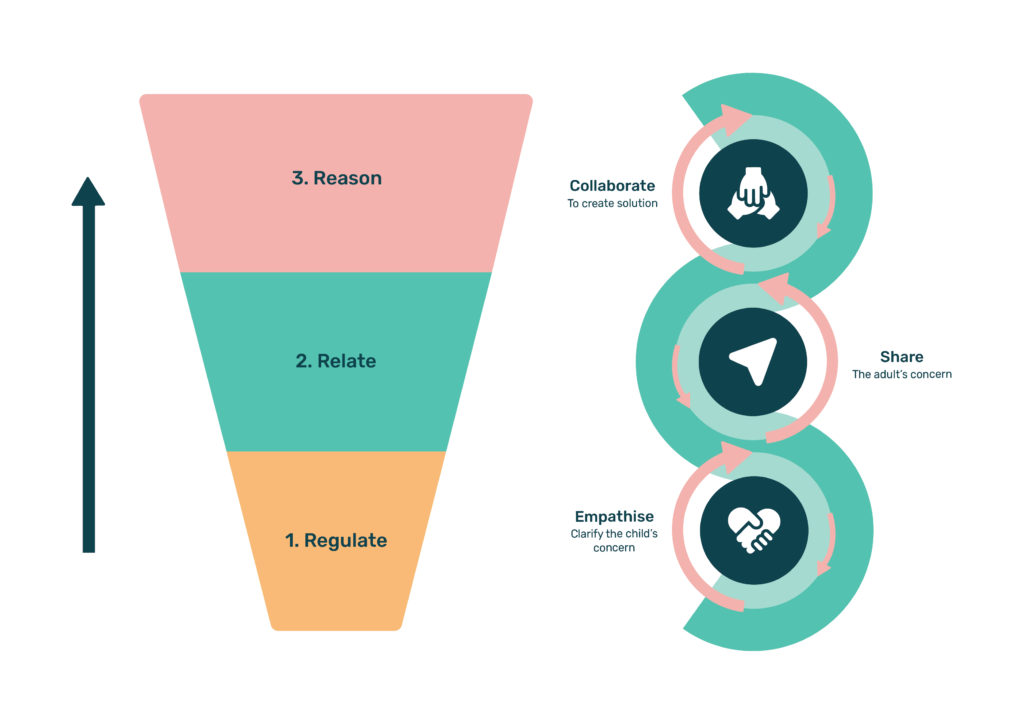Responding to escalations: Applying the 3 R’s into practice
The 3 R’s
1. Regulate
- When they turn up (yell, swear, move quickly, hit hard), you turn down (no verbal communication, slow and subtle movements, listen and reassure with soft facial expressions)
- Provide opportunities for them to engage with sensory stimuli they enjoy (food – oral, perfume – smell, small spaces/tight cuddles – reduced sensory stimuli and deep pressure)
2. Relate
Speaking softly and calmly:
- Recognise own role in escalation (“My mistake, I…”, “I want to keep you safe”, “Sorry, I didn’t hear you”)
- Acknowledge your concern (“I was so worried about you. I didn’t want you to get hurt”,)
- Highlight something specific about your relationship (“You know that I…”, “I’m getting used to you getting so big and making these choices yourself!”, etc.)
3. Reason
- Invite them into creating a solution (“I need your help to figure out what to do now”, “How can we figure out something that works for both of us?” “What do you think…”)
- Remember to acknowledge each other’s wants and desires, validating their suggestions (“It’s really important to you that… and it’s really important for me that…”, “That is a great idea! I am a bit worried about…”, “I think that’s great, let’s do that when we have more time”)
Remember
You must always regulate before relating but you might often need to go back and forth between the two before you can move through to reasoning.
As you try this response, you will make mistakes and will need to go back to regulation. That’s ok! The more you practice, the more responsive the person will become to the process.
Sequence of Engagement: Plan B

References
Extracted from Collaborative Problem Solving, 2019 – Chapter 2: CPS as a Neurodevelopmentally Sensitive and Trauma-Informed Approach by Bruce D. Perry and J. Stuart Ablon
About the author
Jenna Noonan is KEO’s PBS Clinical Excellence Lead. Jenna has established the Positive Behaviour Support stream, expanding KEO’s extensive allied health services.
To gain a deeper understanding of why a person uses behaviours of concern, Jenna has completed additional training to facilitate comprehensive functional assessments.
Jenna’s core values are curiosity, connection and supportiveness – which is what enticed her to work as an occupational therapist; finding joy from working with ‘the tricky kids’ as a graduate which continued throughout her career.
As the NDIS enabled more people to access Positive Behaviour Support, Jenna discovered that her curiosity was not limited to paediatrics. She now enjoys getting to know people of all ages and why they do the things they do.
